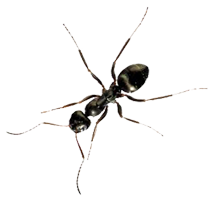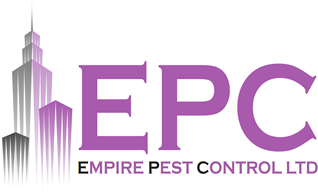
Key features of Ants
EPC based in London provide a full range of services for the control and removal of ants and ant colonies from domestic and commercial properties throughout London. Here’s some information about ants which may help you understand why you might have a problem with them. We have an extremely fast turnout response time and guarantee you will be 100% satisfied with our service if required.
The amount of eggs a Queen ant will lay during her lifetime will vary, and three to four weeks after the eggs have been laid, legless infants will hatch. Over another three weeks, the larvae will begin to mature, and in another two weeks, following pupation, the infants will have become adults.
Roughly, by the end of summer, mature males will depart the nest to find females with which they can mate. After the males have died though, females will hunt for locations ideal for nesting.
Within the nest, there is an established social hierarchy, which means there are thousands of ants with a place and purpose.
Where do ants live?
Black garden ant nests are commonly found amidst humus and dry soil and, despite their regular appearances in gardens, they can also be found in heaths.
When they leave their nests, they are often scavenging for food, following scents that sometimes take them into homes and garden vegetation. Sugar and general crumbs are two examples of what may be attracting ants to your property.
Ants also feed on small insects (alive and dead), seeds, and nectar, to name but a few, as well as sugary secretions created by other insects, such as aphids.
Colonies and Biology
The location of a common black ant’s nest can vary from soil-based foundations to inside tree stumps, and colonies can expand to as many as 5,000 ants at once. Food is scavenged outside of the nest and brought back to the colony; this may include seeds, nectar and even flies. From July to August, ants will mate, following which males will die and females will take over the responsibility of setting up another colony.
During their lifespan, Queens will only mate once. However, the mating season will ensure the colony can grow again. It also heightens the possibility that males and females will mate with ants from other nests to avoid inbreeding.
When the time comes to find a new nest, the Queen will settle in and lay her eggs. The remaining females will look after the colony, and once the larvae have hatched, they first eat those eggs that haven’t hatched. Following this, they will be fed regurgitated liquid.
As for Monomorium pharaonis, numerous Queens will take up residence in a single colony. Colonies are not restricted to just one nest though, as this species has been known to form multiple networks. Because of this, the Pharaoh Ant species can thrive. During their lifetime, Queens are estimated to produce as many as 350 offsprings, and larvae will usually hatch two weeks after the eggs have been laid, where worker ants will feed them.
Variations in the skin will then occur before pupation sets in, giving birth to adults. However, this stage of life will ultimately depend on the temperature of the climate. Unlike common black garden ants, Pharaoh Ant nests can play host to an incredible 100,000 individuals. Perhaps what sets this species aside is the ants’ adaptable nature, meaning colonies can thrive all over the world.
Ant Control Measures
Due to the proportions of Pharaoh Ant nests, an influx of these pests can be tricky to deal with, but adequate treatment, carried out by experienced specialists on all existing nests, as well as ceilings, floors and other areas of a property, will make all the difference.
Generally speaking, treatment using bait is a good method for ant control, especially for this particular species. For infestations outside of the property, domestic or commercial, perimeter barrier treatment will effectively control the situation.
As experts, we recognise that when using baits, they cannot be placed at random and expected to attract this species; instead, pathways need to be identified first, in order for the treatment to be successful.
Ant control for Londoners
EPC, have offices throughout London and all with fully qualified staff with plenty of experience in the control and removal of ants and colonies. If you have any direct concerns about ant nests please do not hesitate to get in touch with us. We will happily offer helpful advice and be able to respond extremely quickly should you need expert control of ants within your home of business premises.
If you need help with an ant problem, contact Empire Pest Control today.


